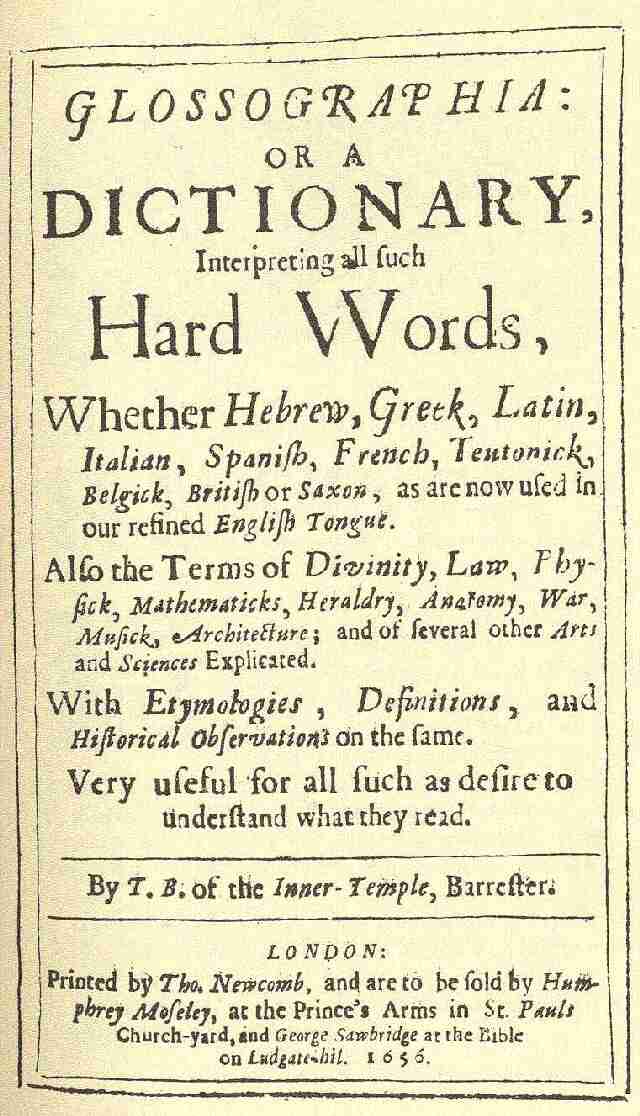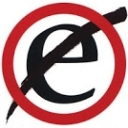
.
Compendium of Lost Words
Frequently Asked Questions
| A-E | F-M | N-R | S-Z | Index |
How did you come up with the idea of a Compendium of Lost Words?
The first kernel of the idea came to me in February of 2002, when I encountered Googlewhacking. In brief, this amusement involves putting any two legitimate English words into the Google search engine and finding results where there is only one page containing both words. When this practice started in earnest, I began receiving many hits on the word lists of the Phrontistery. It occurred to me then that there must be some extremely rare words which are found in some dictionaries (such as the OED) and yet which are found on no web pages that are accessible through search engines.
Why did you create the Compendium? Do you believe that 'lost words' should be revived?
My purpose is to educate and entertain people who love learning about English words, but not necessarily to promote the use of lost words. Of course, I won't complain if one or more of the 'lost words' on my list is restored to some modicum of use in contemporary English. In general, however, though I think that certain words might be useful, I do not pretend that reviving 'lost words' is ever likely to be successful. Lexicological activism is not a useful way to spend one's time, unless you happen to be Dr. Johnson or a figure of similar influence over the language. Moreover, many of the 'lost words' are really too obscure, or refer to concepts that are too obsolete, to be of much use for anyone. I also believe that the function of language is to be understood, and since these words are extraordinarily rare, to use them in conversation might be construed as pretentious or obfuscatory.
What is the Phrontistery?
The Phrontistery is the parent site for the Compendium of Lost Words. It contains a wide variety of resources dedicated to the love and study of obscure English words, including the International House of Logorrhea, which lists 17,000 obscure or unusual words, a variety of word lists on various topics, a loquacious location of lipograms and much more.
I think I've found a new 'lost word'. How do I confirm and submit it?
To submit a new word for consideration as a lost word, you should first consult my page, What is a Lost Word?, and ensure that your word meets all the criteria I've listed. After doing so, send your submission to me. If you find the word in a major English dictionary other than the OED, I may still consider adding it, but you should definitely give me a specific source (including page reference) for the word. I do not consider neologisms, slang terms and words not found in at least one major dictionary to be candidate 'lost words'. If you successfully find a new word, your name will be entered on the contributors page for the Phrontistery.
Hey! The word "xxxx", which you list as a lost word, is also on some other page. Shouldn't it be taken off the list?
First, consult my page, What is a Lost Word?. You may find that the word is neither defined nor used in its proper English context - in which case it is indeed a 'lost word'. Alternately, it is possible that my Internet searching using Google did not turn up the page in question; while Google is the best search engine available, it certainly is not perfect, so a page may have slipped by. It may also be that someone (whether or not he/she has seen my page) used the word after the introduction of the Compendium. The Compendium has received a lot of press since 2003, and many people have quite understandably used some of the lost word as examples. In any case, I am not inclined to take such words out of the Compendium, particularly because the Internet is a fickle and ephemeral medium, and what seems 'found' may easily be lost again as pages go defunct.
Why aren't the 'lost words' included on the other word lists of the Phrontistery?
I have excluded 'lost words' from my International House of Logorrhea and the various topical word lists intentionally. If I had included 'lost words', this would violate the principle that such words should appear in their proper context on one and only one web page. If I can figure out some good way of referring users to the appropriate topical word lists (or vice versa), I may decide to do so in the future.
Why do so many 'lost words' come from 1656?
Of the 400-odd lost words in the Compendium, 87 were first used in 1656 and 62 were last used in 1656 (46 of these were used only in 1656). One of the major early sources for the OED, Glossographia by Thomas Blount, was first published in 1656. Blount went to great lengths to find very unusual words coined by authors of his day, many of which were derived from Latin and Greek roots. Glossographia provides a snapshot of the obscure words of the day, many of which have never really been used since its publication.
Why do you use the OED and Google as the dictionary and search engine for determining the status of lost words?
Essentially, because they are the largest and most comprehensive resources of their kind. No search engine ever achieves complete coverage of the Internet, just as no dictionary achieves complete coverage of a language. I will accept new 'lost words' that seem adequately 'lost' if they are found in a major reference dictionary, but I'd like to make sure they really don't occur on the Internet; many lesser search engines have rather pitiful coverage.
I hope you have found this site to be useful. If you have any corrections, additions, or comments, please contact me. Please note that I am not able to respond to all requests. Please consult a major dictionary before e-mailing your query. All material on this page © 1996-2021 Stephen Chrisomalis. Links to this page may be made without permission.
| A-E | F-M | N-R | S-Z | Index |








